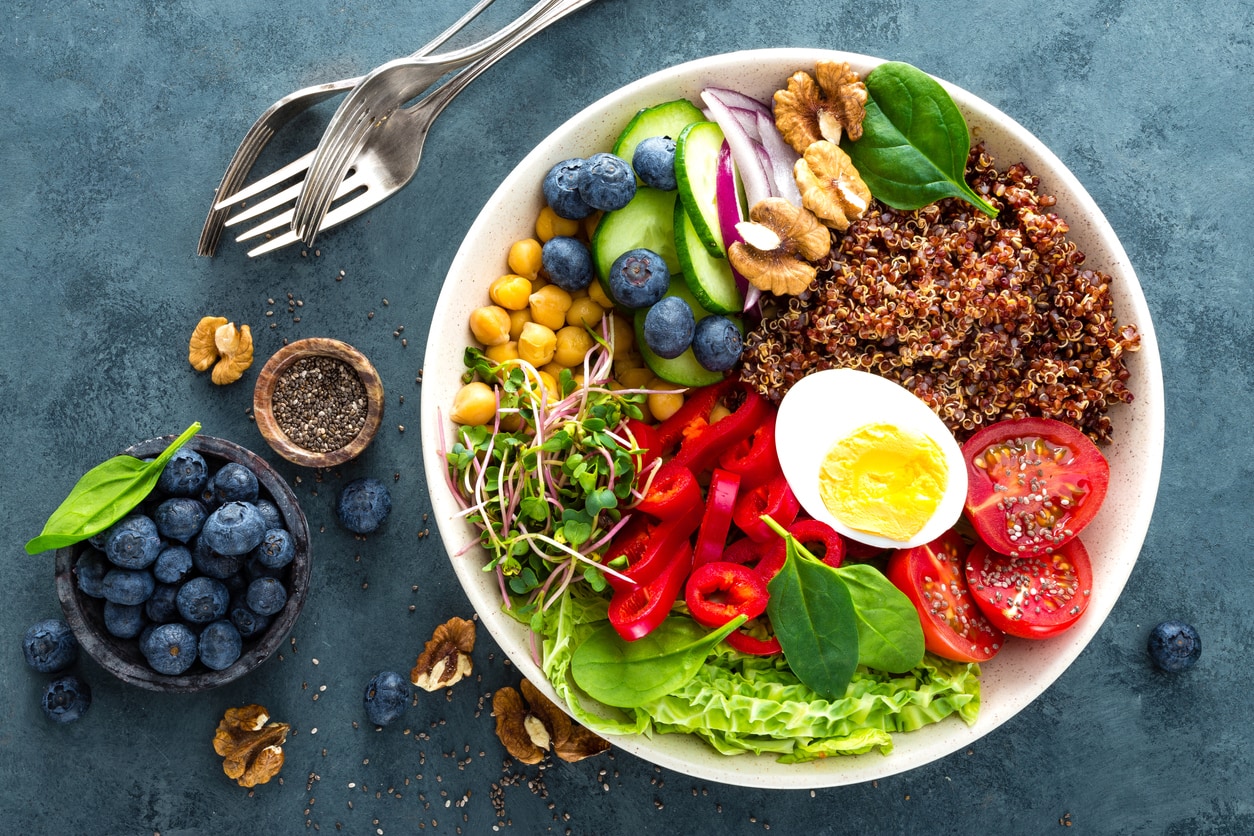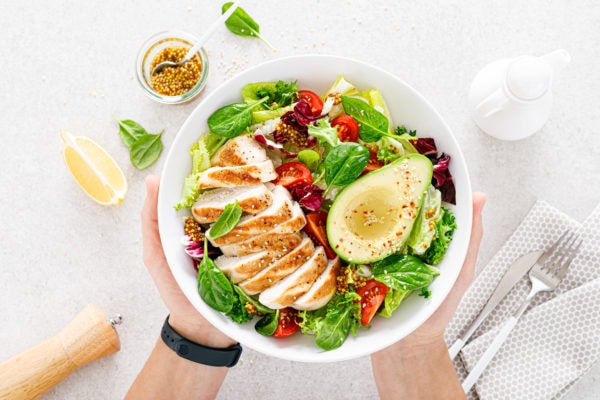How Do You Start Eating Healthy?
Getting started eating healthy might sound difficult, particularly if you’re used to a diet heavy on fast food and sweets. But it’s easier than you might think, and you’ll soon find so many benefits to your physical and mental health, from improved sleep and gut function to more energy for both work and the activities you enjoy the most.
A diet made up of a variety of different types of foods leads to a more diverse gut microbiome. A more diverse microbiome is the healthiest kind. While traditional Western diets are high in fat and sugar, choosing a diet with a greater emphasis on plants and whole grains is key.
What Should You Eat to BeHealthy?
A diet filled with whole foods is the most beneficial for your overall health. And it’s simple to do. Just cut out the sugar, put that fast food away, and:
Prepare most meals at home, focusing on whole foods
Make an eating plan every week for fast and easy meal prep
Choose recipes that have lots of veggies and fruit.
Drink water instead of sugary drinks.
Eat smaller meals more often, rather than skipping meals and going for one large meal
Make your portion size reasonable – fill the center of the plate, not all the way to the rim, and don’t pile on food, either
What Makes Up a Healthy Diet?
A healthy diet should be composed primarily of whole foods like vegetables, fruits, beans, nuts, seeds, and whole grains. More specifically, your diet should include:
Eating healthy vegetables, fruits, beans, and legumes
Eating fiber rich foods such as raspberries, blueberries, artichokes, broccoli, beans, lentils, apples
Eating fermented foods like yogurt, kimchi, kombucha, tempeh, and sauerkraut which are rich in healthy lactobacilli bacteria
Eating prebiotic foods including a variety of fruits, veggies, and whole grains, and which can reduce levels of insulin, triglyceride, and cholesterol
Eating whole grains to increase healthy bacteria and reduce inflammation
Eating as little red meat as possible, and centering your meals on a plant-based diet to reduce body weight, inflammation, and harmful levels of cholesterol
Eating foods to reduce inflammation in the body by increasing healthy bacteria, while reducing triglycerides and C-reactive protein, like dark chocolate, red wine, almonds, and blueberries
Consuming more probiotics which benefit your health by positively altering your body’s microbiome if its compromised due to health or medications
Reducing or avoiding intake of red meat and extensive non-plant-based protein sources
Summing Up a Healthy Lifestyle and Diet
Along with eating healthy, it’s important to increase your daily movement to stay healthy too. Just thirty minutes of moderate exercise daily, like running, dancing, yoga, or just plain walking, will do the trick.
Remember, a healthy diet includes:
Vegetables
Fruits
Whole grains and fiber
Small portions of protein
It does not include:
Processed or fast food
Excessive sugary treats or breads
Sodas
Be sure to read nutrition facts on product labels to help you find foods rich in fiber, minerals, and vitamins, but low in sugars, salts, and additives.
And, don’t overeat – make sure your portion size is balanced.
Lastly, a healthy herbal supplement can enhance your diet, too.
Learn More About Longevity Herbs
Keep all your healthy bases covered by adding a healthy vitamin or supplement to your diet. At Longevity Herbs, we can help!
If you’d like to learn more about Longevity Herbs, browse our product selection online or contact us today.






